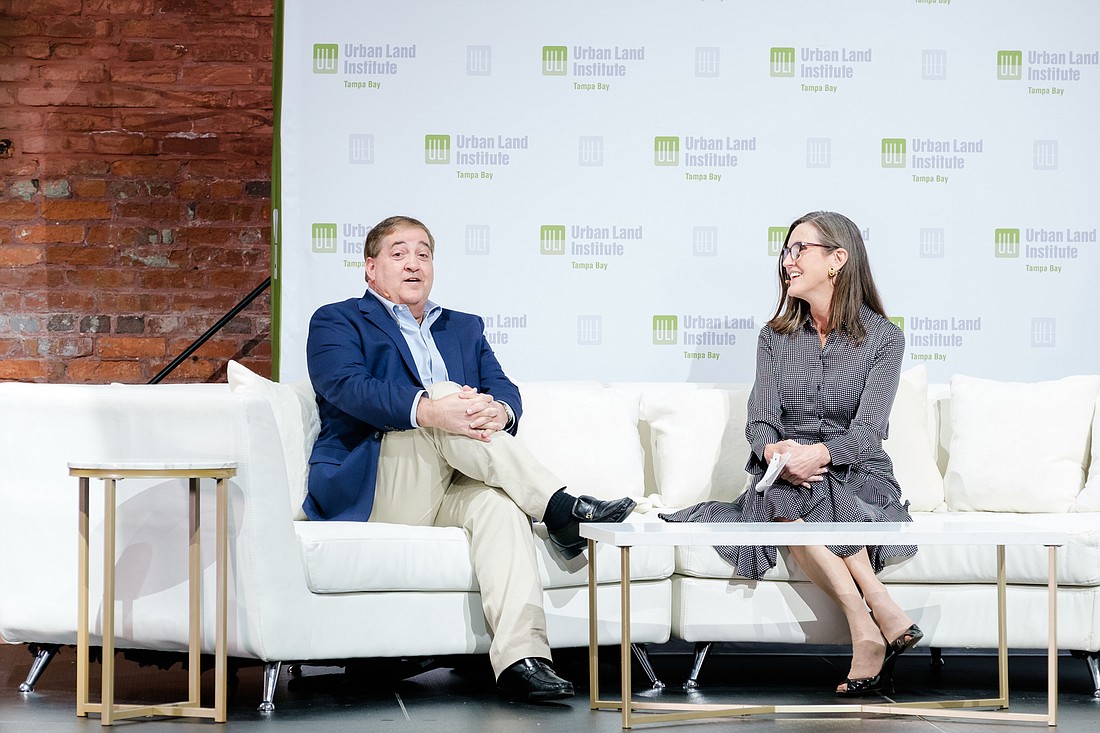It’s hard to imagine anyone more on the forefront of Tampa’s transformation from a sleepy Florida town into a powerhouse than Jeff Vinik.
As the owner of the Tampa Bay Lightning, he has helped, maybe even driven, to remake this a region where championships and victory parades are commonplace. And as the lead developer behind Water Street Tampa, the massive $3 billion, 56-acre mixed-use development just south of downtown, he is creating a massive city-within-a-city and changing how people live out of what once was a collection of parking lots.
In his role, Vinik has helped the city experience a period of unprecedented growth that many believe is in its early stages and that is drawing people not simply because of the sunshine and water but because it is a place for innovators and young people to put down roots.
But the billionaire former hedge fund manager also knows the old Spider-Man maxim: with great power, comes great responsibility.
That responsibility, which is shared by the entire community, will be key to how the city in the next years and decades handles the mixed-blessing that is growth. The revolves around how it deals with the tens of thousands of new residents who bring energy but also drive up housing prices and strain an already-strained infrastructure system of crowded streets and schools and create more demand for fire and police services.
“I haven’t felt great about seeing these pressures on people’s cost of living here over the last couple of years,” Vinik says. “This is a wonderful place, and people are discovering it, moving here. We’ve got to build the infrastructure and take care of everybody. And that’s housing infrastructure. That’s transportation infrastructure. That’s schools infrastructure. That’s everything. We’ve got to get ahead of this.”
Vinik made the comment to the Business Observer March 1 shortly after coming off stage at the ULI Trends Conference held at Armature Works, where he and ARK Investment Management’s Cathie Wood chatted for nearly an hour.
The two titans of Tampa Bay’s business community, one here for more than a decade, the other for a year, sat on a white couch in cavernous meeting room at the food hall. They talked about the economy, innovation, the future and, of course, the area.
One of their main topics of conversation was why people are being drawn to the Tampa Bay area. The consensus, as it usually is whenever the topic comes up, is both quality of life and opportunities.
But both Woods and Vinik say the area’s growing innovation ecosystem is a big draw, too.
Wood, who moved her Wall Street investment firm from New York to downtown St. Petersburg last year, says the majority of ARK’s workforce, which is working remotely and in the office, will be here by the end of June. One employee, she told the audience, epitomizes the draw of the area. This employee commutes to St. Petersburg weekly and Wood was convinced he would stay on that track, in large part because the man’s girlfriend is in the real estate business in New York City. On one recent weekend, though, the couple spent the weekend in St. Petersburg.
Not long after, Wood says, he approached her and asked, “Do you think you can find her a position here?”
While stories like that are nice for those charged with selling the area as a destination and helping paint Tampa Bay as a booming metropolis on the verge of something bigger, the brutal reality remains that this growth is creating problems. A fact not lost on Vinik or Wood.
One issue is transportation and how someone without the means to afford a car or prefers the bus can get around. Then there is the issue of wages, which are rising in the area — but not enough to keep up with faster rising prices, in everything from hotels to houses to ham.
The most immediate problem is skyrocketing housing costs and rents, which is largely caused by the number of people moving here.
“I never imagined it would be as extreme as it’s been over the last year or two,” Vinik tells the Business Observer. “It’s not just happening in Tampa Bay, it’s happening around the country. But given how strong our economy is locally, and the people moving here, you know, we’re actually facing the brunt of that.”
According to Zillow, Tampa’s home values are expected to rise 24.6% through November, about 10 percentage points higher than the 14.3% home value growth expected nationally.
The solution, Vinik says, is more houses and apartments. That additional inventory will help address the demand and drive prices down or, at least, help level them off. That will take time, though.
Meanwhile, he sees “economics at work” and wages starting to go up.
“I think we’re going to see prices peak out pretty soon, actually,” Vinik says.






